Ōtaki, north of Wellington, just off State Highway 1, is a town where you’re likely to hear Te Reo Māori spoken in the supermarket aisles. It’s home to the first Maori tertiary institution, Te Wananga o Raukawa and is on track to become New Zealand’s first bilingual town.
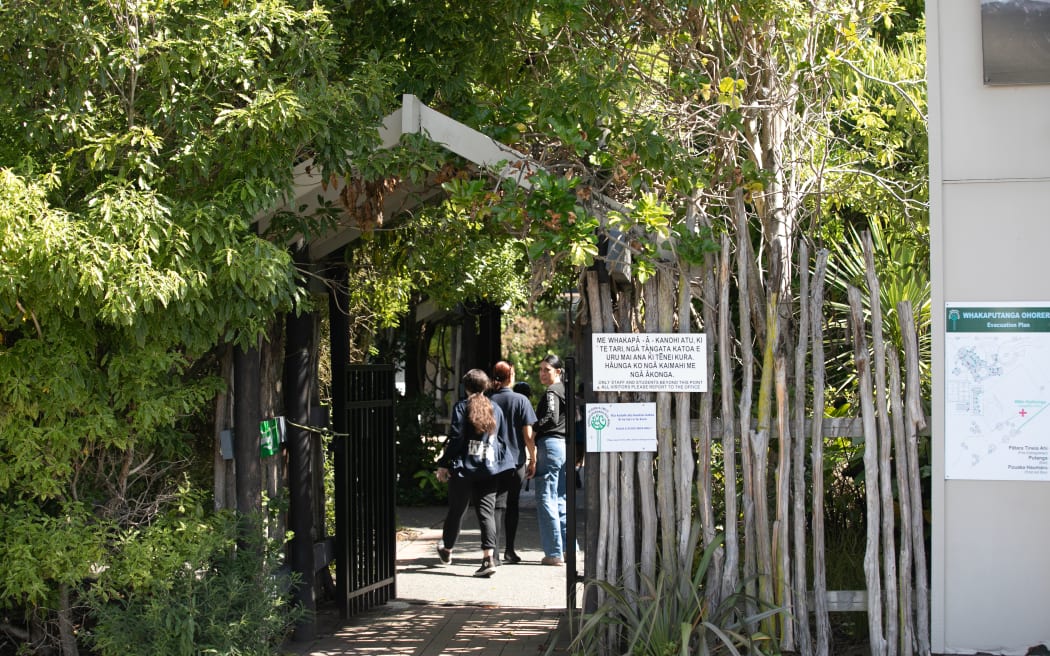
The wahora of Te Kura ā Iwi Whakatupuranga Rua Mano in Ōtaki. Photo: Louis Collins
At the end of last month, a trio of MPs made their way to the Kapiti Coast town for the Speaker’s Outreach Programme.
The previous Speaker, Hon Trevor Mallard established the programme in 2018, as a way of bringing Parliament to the people. It aims to challenge perceptions some may hold of Parliament and the politicians walking its halls, as being perhaps, remote or elitist. Speaker Adrian Rurawhe was joined by the MP for Otaki, Labour’s Terisa Ngobi and the Greens’ Teanau Tuiono. A National Party MP was unable to attend on the day.
The host of the outreach, Te Kura a Iwi o Whakatupuranga Rua Mano, is a total immersion Te Reo Māori school - which of course means Te Reo Māori is spoken almost exclusively within the school grounds.
This was not the first Speaker’s Outreach to visit a kura, but it was the first outreach to be conducted in Te Reo.
Following a full powhiri, and some chin-wags in the staff room over tea, coffee, and savouries, the delegation made its way across the road to the gymnasium at the Wananga O Raukawa. This was to be the venue for a mock debate, a staple for Outreach visits.
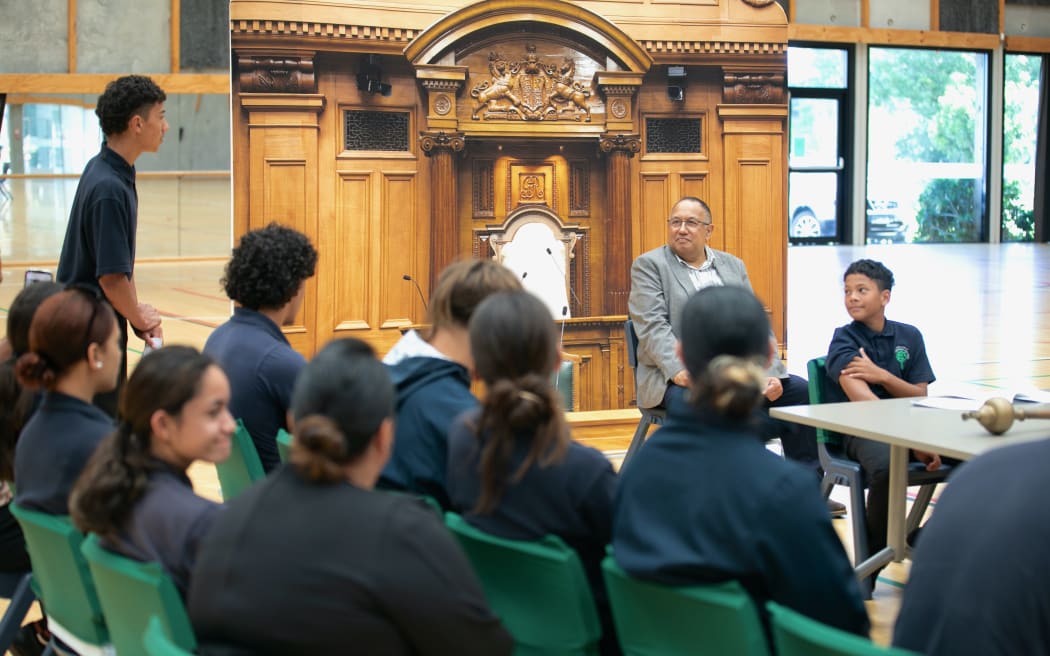
A student role-playing as the Prime Minister makes his opening remarks during the mock debate. Photo: Louis Collins
As the students made their way into the gymnasium, the parliamentary team pulled two objects from a suitcase. One was a replica mace and the other a collapsible backdrop of Parliament’s debating chamber, to set the scene for the immersive mock debate. For the next half hour, the students from the kura filled up either side of the gym, to make up the Opposition and Government sides of the chamber.
It may have seemed some students missed the memo about appropriate dress code for the ‘debating chamber’ but the crocs and sunglasses were donned for good reason. The kura rangatahi were arguing for and against that classic college debating topic - should our school wear uniforms?
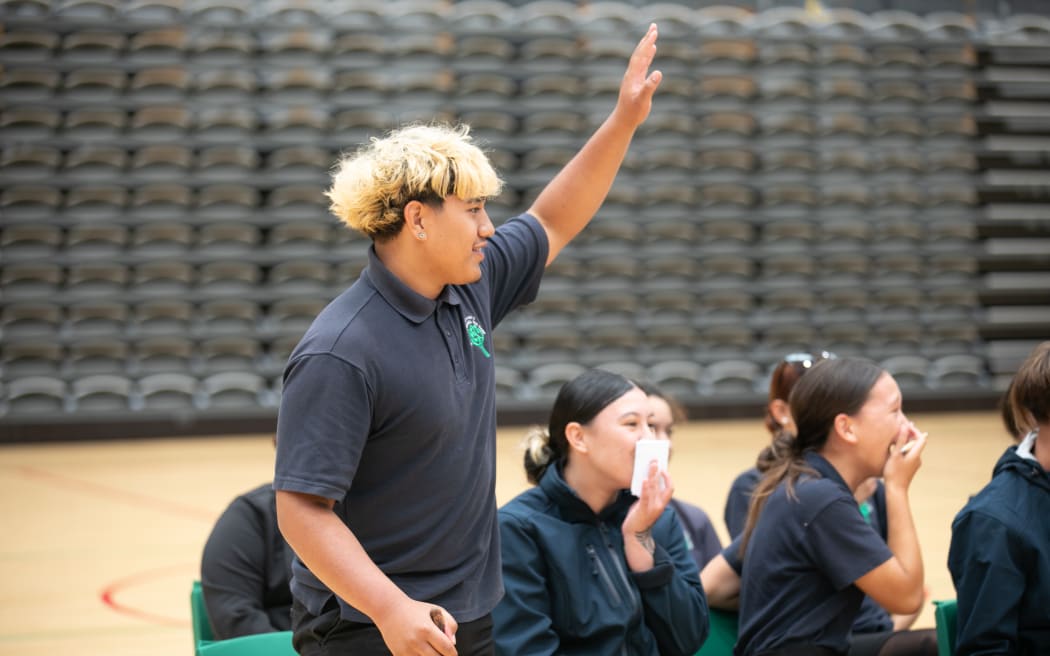
A student on the Government side of the mock debate stands to raise a point of order. Photo: Louis Collins
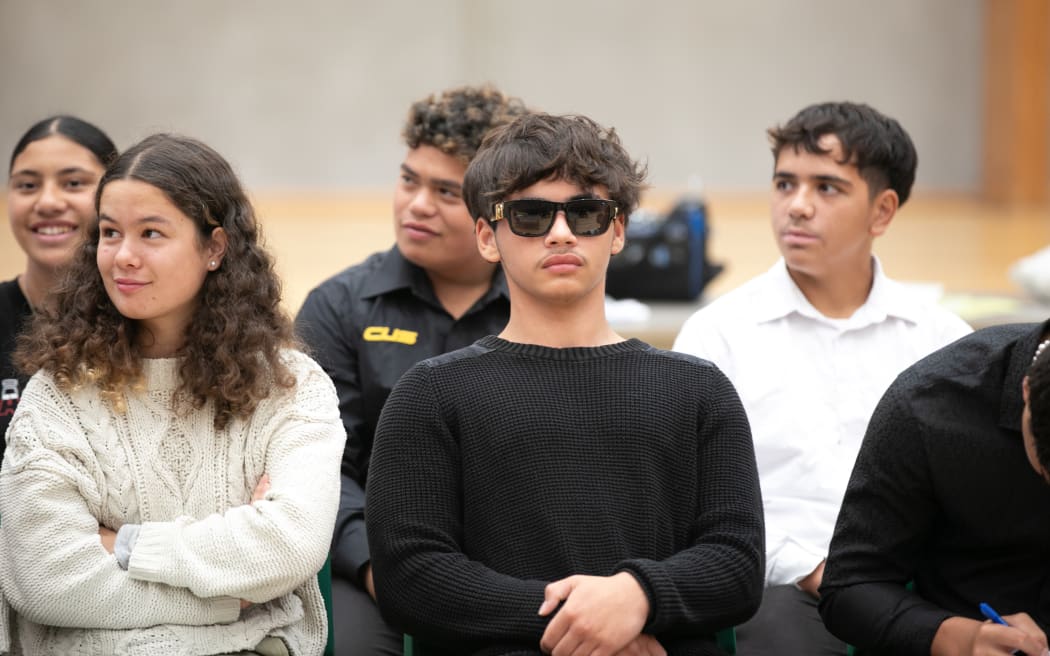
One student on the Opposition side of the mock debate sits with sunglasses on to support the argument against uniforms. Photo: Louis Collins
Although the students may have felt a little nervy early on in the presence of the politicians, soon enough, debate began to flow easily.
Korero was fierce, compelling and at times, very funny.
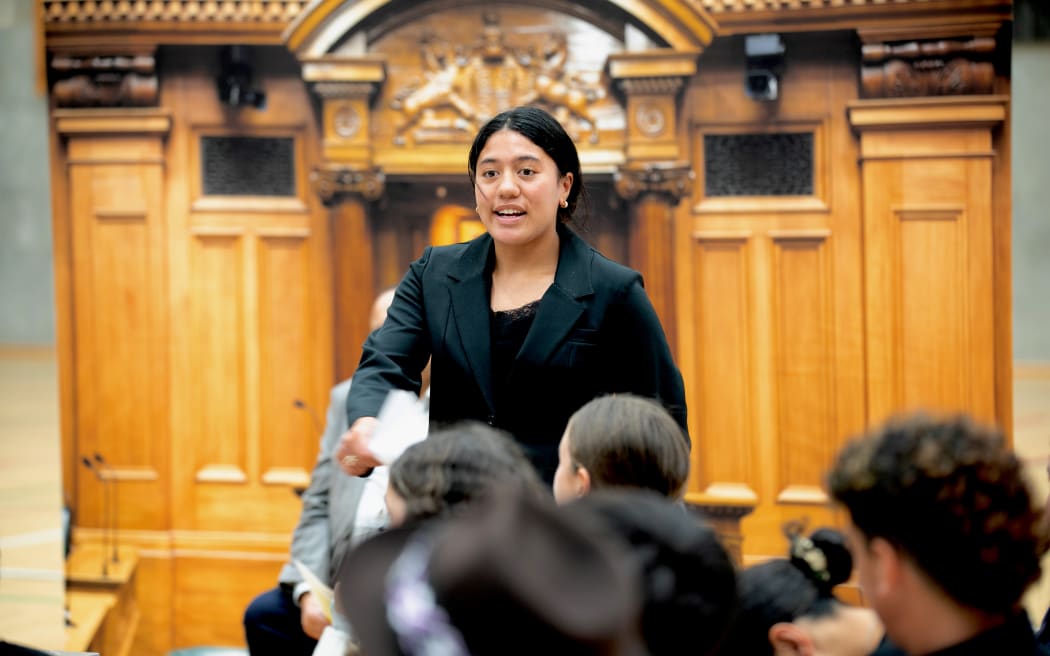
A student role-playing as the leader of the Opposition makes her case during the mock debate. Photo: Louis Collins
After a decisive victory by the Opposition, (or Ngati Crocs as coined by their government counterparts), it was pretty obvious the rangatahi were already more than capable in the art of persuasion.
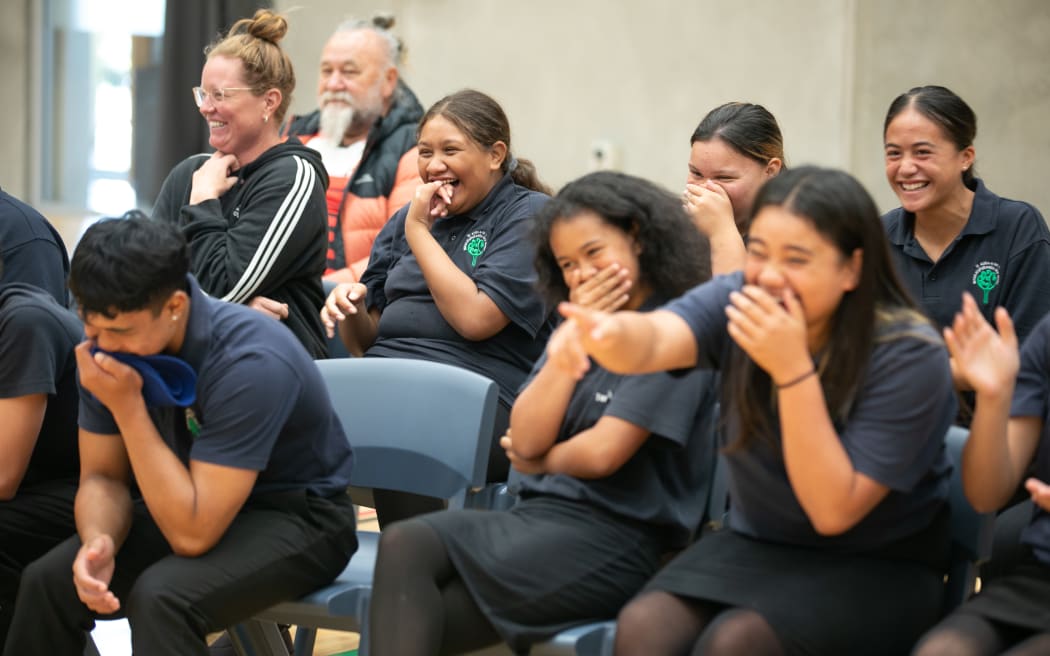
Te Kura a Iwi o Whakatupuranga Rua Mano students and teachers made up the audience of the debate, which was often humorous. Photo: Louis Collins
Some of the students shared their ideas of what a Member of Parliament is. One observed that they were people who “liked to talk and knew how to dress.” The latter, no doubt a pleasing notion to many MPs.
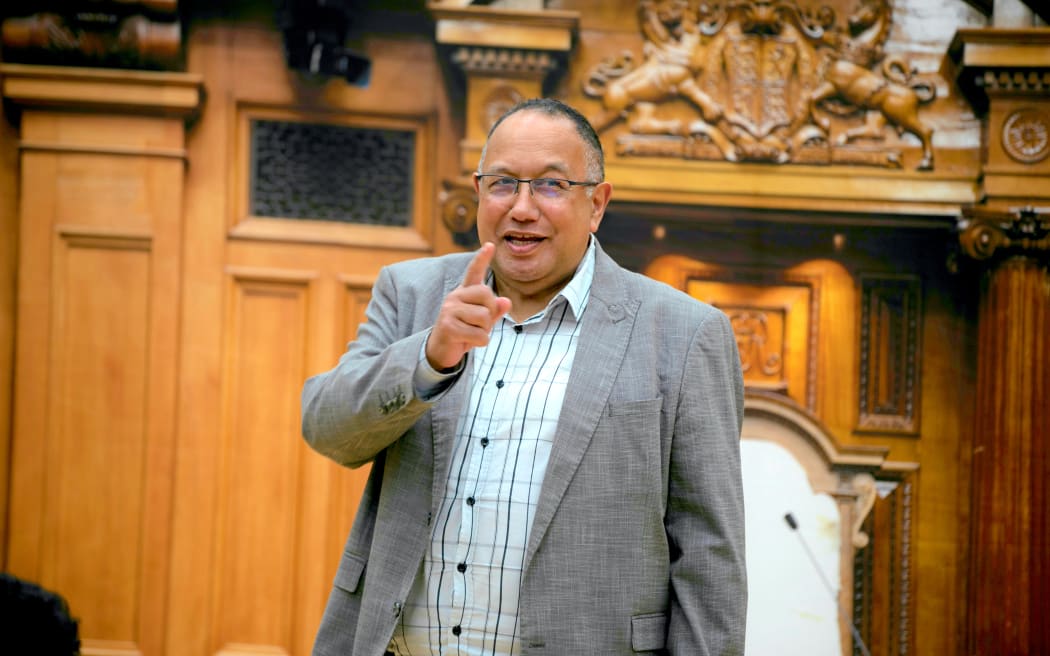
Speaker Adrian Rurawhe gives the Greens’ Teanu Tuiono a warning for pushing the debate rules. Photo: Louis Collins
The students had varying levels of experience and knowledge of Parliament, with one student visiting during their iwi’s settlement process.
The experience of the mock debate at their kura appeared to shift some pre-conceptions.
“Parliament looks kinda big and scary,” one student offered,“But I feel like we’d do alright in Parliament.” Another said she’d be keen to get stuck into more debating in future, perhaps on more serious issues, like lowering the voting age.
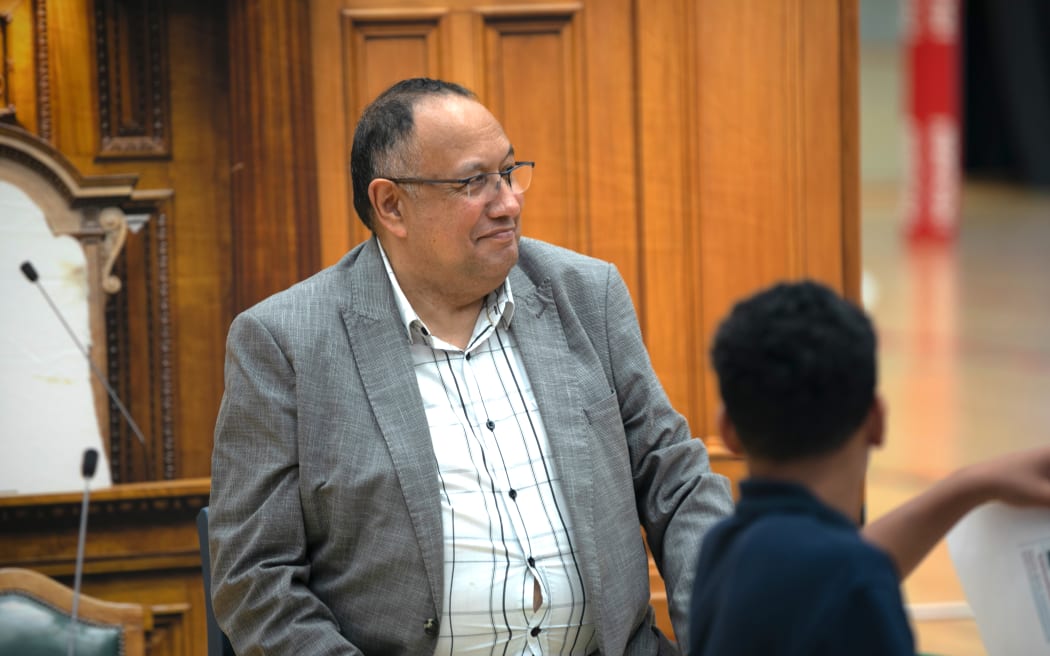
Speaker Adrian Rurawhe listens to the Opposition make their case during the mock debate. Photo: Louis Collins
As for the MPs, it’s fair to say they all felt pretty inspired. The outreach programme stands alone as a unique window into the community. It has a more authentic feel of genuine engagement than the politicians’ default setting of door-knocking or photo-opping at local community events. Here, there was an abundance of laughter and enjoyment from both the students and the manuhiri and by the end of the session, mutual respect.
Having Members of Parliament come and sit with them and argue about why they should be able to wear crocs to school, broke down some of the perceived mystery of Parliament. The event being exclusively in Te Reo, was a reminder that there can be a symbiosis between te ao and Te Reo Maori and the Parliamentary environment. The MPs at this outreach emphasising that rangatahi were key to this effort.
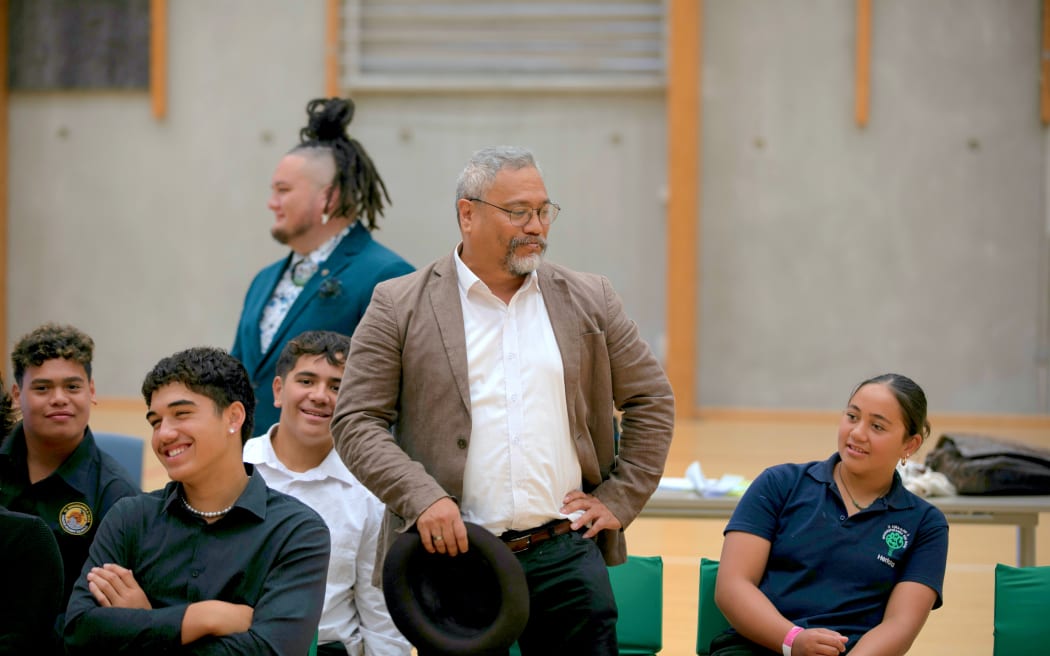
The Greens' Teanu Tuiono makes his case during the mock debate. Photo: Louis Collins
If the outreach programme's goal is to show New Zealanders, that regardless of age, location, reo spoken, or choice of footwear, that Parliament is accessible to all, then this visit to Ōtaki can be considered a raging success.

